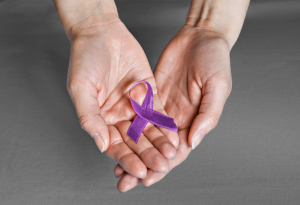Contributed by Paul J. Anderson, M.D.
There is no way around it, firefighting is a stressful job. Physically, you must be able to handle the stress of the station alarm or an emergency call, the truck sirens blaring, gearing up and working hard until the fire is out, keeping at it until overhaul is done, and staying until your gear is clean and back in your locker. Emotionally, you must handle distraught victims, exposure to horrible life situations and trauma, the unpredictable attitudes of your teammates, and anything else that comes at you on a call. On top of all that, if you are like most firefighters in Minnesota – part-time or volunteer – this might not even be your day job, and you likely have a family to take care of as well.
All of these things considered, firefighting exposes us to high levels of stress. With prolonged exposure to these elevated stress levels, firefighters can feel a negative ripple effect through various aspects of life that may eventually hinder a person’s ability to function.
The most important thing to remember about your body is that it cannot tell the difference between various kinds of stress. “Stress is stress” to your body. It’s also good to remember that too much stress can negatively impact almost all of the other lifestyle habits you might be trying to build or maintain. With too much stress, we eat poorly, sleep poorly, have low energy for working out, our relationships suffer and we may turn to alcohol or other substances a little too often to “take the edge off.”
But there are ways to counter the “crunch” of too much stress in your life. Here are a few thoughts to help you step out in another direction:
- Prioritize: Being stressed out happens sometimes in everyone’s life, but often it happens because our priorities have gotten out of order. Think about what capacities are most important to you and what skills and resources are essential to helping you be your best for yourself and the people around you. Prioritize the time and activities that support those resources. Take control of your schedule. Decide to let some things go.
- Downsize: So much stress comes from trying to do too much in too little time. Maybe there are some parts of your life you could simplify or let go of altogether to get back on track. Think about your commitments, your obligations and the extra activities that are filling your time. Maybe you can back off just a little bit and buy yourself some time to recharge.
- Capitalize: Capitalizing means you take what you have and reinvest it in key resources that make you even more successful. Take your new priorities, and some of the time you gained from downsizing, and re-invest in your key relationships, the physical and mental health you have through physical activity and great nutrition, good friendships, spending time in nature and participating in activities or causes that bring you joy.
Managing stress is a key pillar of a healthy lifestyle that will improve your ability to be present to your work, your family, and yourself. You can read more about other healthy lifestyle pillars, such as physical fitness, here.








